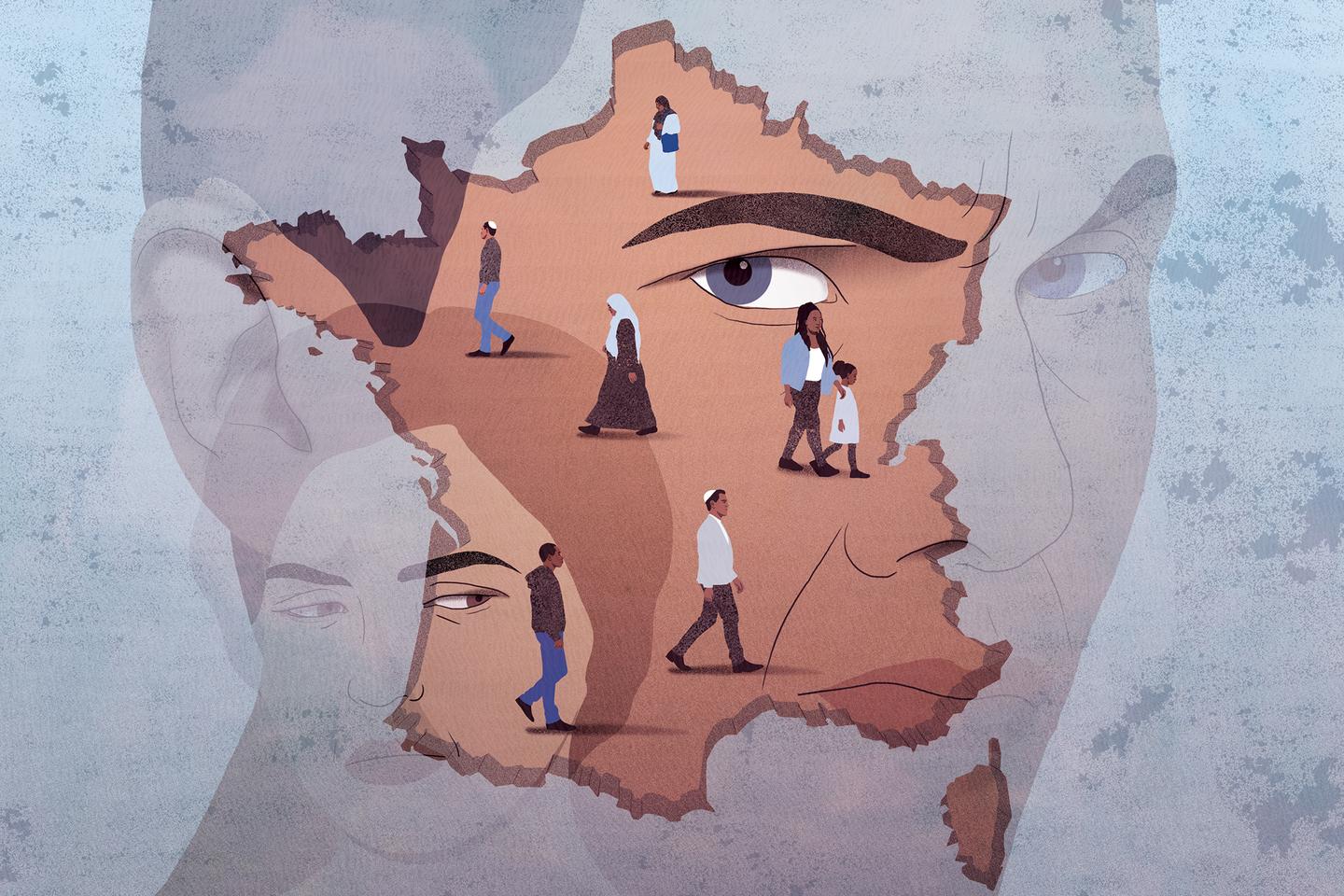


For the first time, the French prime minister's office did not respond to the invitation to attend the presentation of the annual report on the fight against racism, anti-Semitism and xenophobia by the National Consultative Commission on Human Rights (CNCDH), published on Thursday, June 27. For over three decades, it had, in theory, been an unmissable event for the prime minister.
But in the run-up to France's snap elections, to be held on June 30 and July 7, the figures revealed in this report – based on on-on-one interviews conducted with a representative sample of 1,210 people – are alarming: The longitudinal tolerance index, which measures changes in French people's prejudices each year on a scale from 0 to 100 (the closer the index is to 100, the higher the level of tolerance), has dropped by 3 points in one year, to 62. This is a "significant and rare" decline, highlighted political scientist Vincent Tiberj, a university professor, researcher at the Emile-Durkheim Center, and a co-author of the report.
The index, which has fallen for the second year running, is still among the highest recorded levels, far above the early 1990s and 2010s (around 50, at the time). Under the influence of three demographic trends – rising educational levels, generational turnover and the diversification of the French population – "biological" racism, which is based on the belief that some races are superior to others, has become a marginal phenomenon. An overwhelming majority of French people surveyed are now quick to condemn discrimination, and 79% of them considered that a "vigorous fight against racism is necessary in France."
'Media and political noise'
"A majority of citizens remain open-minded," insisted Tiberj. "Open to diversity, to immigration, able to distinguish between criticisms of Islam and anti-Muslim stereotypes, but many don't vote, while the most radical right-wingers do turn out to vote." Indeed, 54% of Rassemblement National (RN, far-right) party sympathizers and 26% of Les Républicains (LR, right) party sympathizers described themselves as racist. Moreover, their ranks are growing, just as the far-right party's image has improved among the French population. According to an annual barometer on the RN's image, published by Le Monde and Franceinfo in December 2023, 41% of French people surveyed thought the RN represents a danger to democracy, the lowest level since 1984.
Today, its electoral success is fueled by a multi-faceted xenophobia that centers all forms of intolerance on immigrants. Beyond age-old stereotypes, it is also an economic and social phenomenon. "Against a backdrop of deteriorating public services, particularly in healthcare, there is a feeling that immigrants are taking part of the resources allocated to social protection," added Emmanuel Rivière, a public opinion specialist and lecturer at Sciences Po. In addition, there is "the link made by many French people between insecurity and immigration," explained Laurence de Nervaux, executive director of the Destin Commun think tank. "And, finally, there is tension around the question of Islam and its relationship to the Republic's values, notably women's rights and secularism."
You have 57.78% of this article left to read. The rest is for subscribers only.
